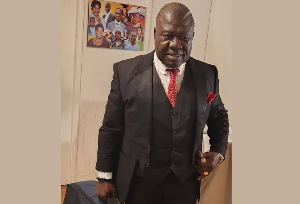Some identified 200 small hydroelectric power sources are waiting SME funding. Small and Medium-sized Enterprises (SMEs) have been equipped with basic tools and methods to easily identify and assess the potentials of production sites through the use of hydroelectric or biomass resources. The workshop to help SMEs set up renewable energy projects that opened in Douala on Monday, April 7, ended Friday, April 11, 2014.
Apart from meeting national electricity needs, the purpose of the projects is to improve conditions of life within rural communities and drive forward their development. Participants were briefed on the various decentralised production technologies of electric energy through the use of small hydroelectric plants and agricultural or forestry residues. Going by the recommendations made, the Electricity Regulatory Agency (ARSEL) is to exhort SMEs to work in perfect synergy with municipal councils across the country.
ARSEL General Manager, Jean Pierre Kedi, said if small hydro and biomass power production of say 10 megawatts is produced in each of the approximately 360 council areas in the country in every 10 years, Cameroon would have produced a total 18.000 megawatts of electricity in the past 50 years for a colossal FCFA 5.000 billion— indeed, a huge financial source for the country.
Organised with the financial support of the European Union, the workshop which falls within the project christened “Invest’Elec”, undoubtedly, revived the instinct of rural electrification investors.
They were equipped with basic tools and methods to identify and assess the potentials of production sites with the use of hydroelectric or biomass resources, conduct brief technical studies of generation and distribution of electricity as well as develop the economic and financial analysis of each project in order to determine profitability, etc. The aim was to offer SMEs and municipal councils the technical, economic and financial tools that will enable them to produce a satisfactory, low-cost electrical energy for the rural population.
Individuals can also be involved as Independent Power Producers (IPPs). Where the total electric capacity is 5 megawatts, the enterprise or individual does not need a licence but is granted an authorisation by the competent authority. Invest’Elec project has the general objective of promoting private investment in rural electrification through renewable energies.
Infos Business of Monday, 14 April 2014
Source: Cameroon Tribune












